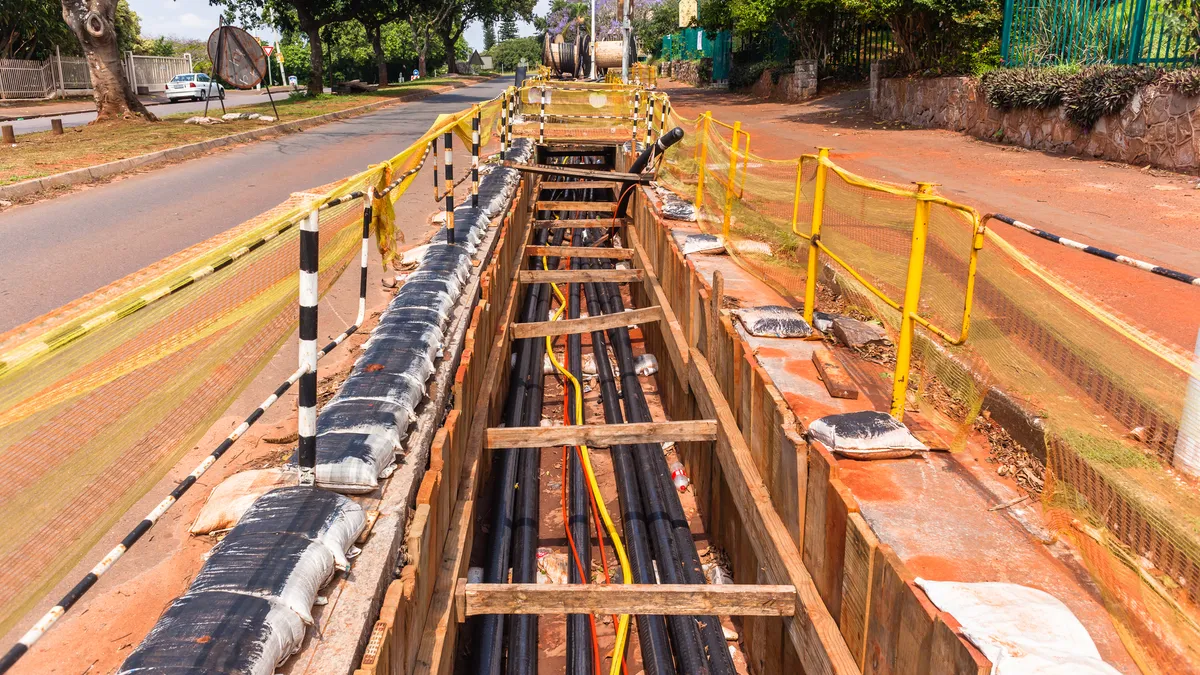Dive Brief:
- Failures and inefficiencies in the country's 811 "call before you dig" system are costing utility consumers $61 billion per year and increasing risks to public safety, according to a report released last week from the Infrastructure Protection Coalition (IPC).
- The "811 Emergency" report found that expenses were accrued most often when locate marks were destroyed, leading to wasted time and additional work, and when utilities and third-party locators received poor instruction or were sent to do work for projects that didn't happen.
- Arkansas, Florida, Georgia, Michigan, Missouri, Wisconsin, and the District of Columbia accounted for more than 20% of the national waste, for a combined $13 billion. That waste is ultimately due to 811 policies that lack teeth, and in some cases, do not mandate reporting of damage to utility lines, according to the study.
Dive Insight:
The study looked at all 50 states in the U.S., plus the District of Columbia and the city of Chicago. The report comes on the heels of President Joe Biden signing the bipartisan $1.2 trillion infrastructure act into law last week, paving the way for funding dollars to be pumped into the nation's infrastructure, including utilities.
Mark Bridgers, a management consultant to the energy and utility industry at Continuum Capital, said that the results of the study floored him.
"'Surprise' is not a strong enough word. 'Shock' is the appropriate word. We kind of inherently knew that there were inefficiencies embedded in the process. We had no idea how much it was," Bridgers said.
The $61 billion in waste, inefficiency and excess cost is embedded in the system and is largely invisible, the report said. This sits on top of the $30 billion in annual out-of-pocket cost due to damage to underground utilities, calculated in 2019 by Common Ground Alliance, according to the study.
Tim Wagner, president and CEO of the Power & Communication Contractors Association, said that the burden of these extra costs falls on one group of people: consumers.
"There's $61 billion in waste in this system, the rate-payers are paying $61 billion too much in rates for their gas and electric bills, that's the bottom line," Wagner said.
The study emphasized that the waste and inefficiency is fixable. Researchers put forward 13 different solutions, including:
- Mandating that all asset owners, operators and other personnel enroll in the 811 system.
- Refine dig laws so that all damage to underground utilities must be reported.
- Create a third-party enforcement board to deal with issues.
- Balance the penalty structure so that all parties face a similar risk.
The study claims these and the rest of the recommendations could be implemented nationwide at a cost of $1.2 billion, and would eliminate $30 billion in damage and waste over a three- to five-year timeline.













